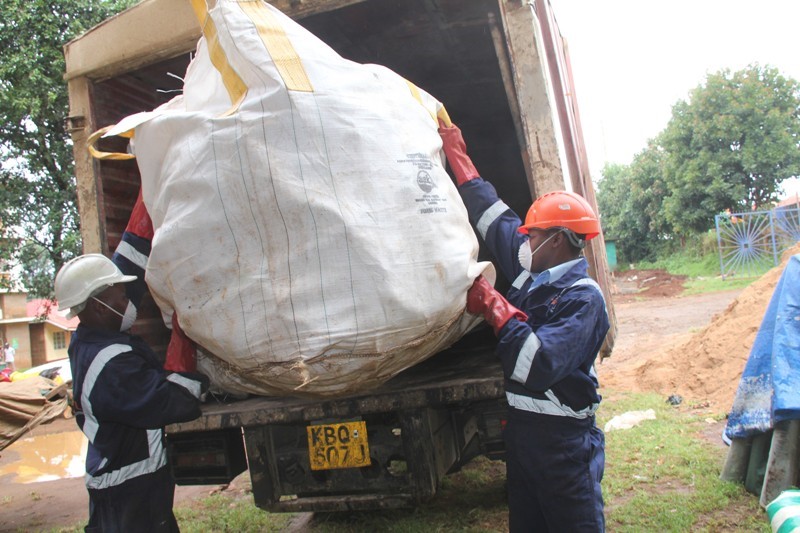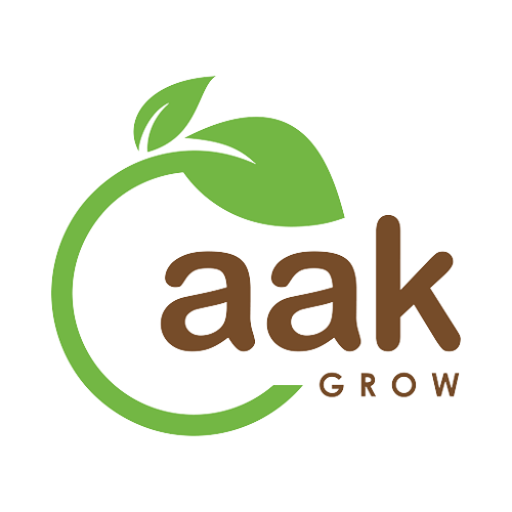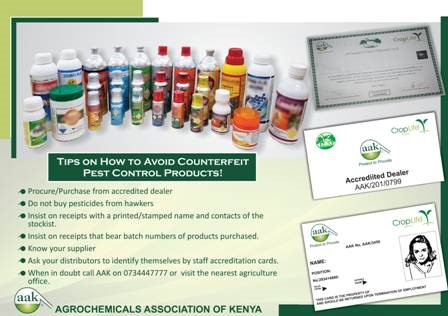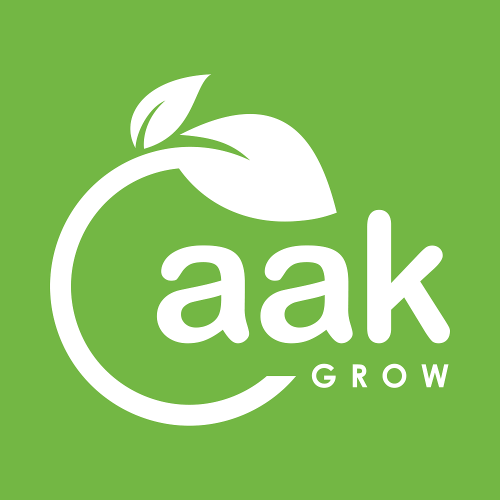Organisation
aak-GROW is also known as Croplife Kenya as the national representative of the international agrochemicals Industry, represented worldwide by CropLife International.
To be a leader in pest control products’ stewardship.
To facilitate responsible management of pest control solutions for improved agricultural production, public health and environmental protection.
aak-GROW’s niche is in pest control stewardship. We are the representative of the pesticide industry in Kenya. We contribute to improvements in pest control products’ quality, responsible use and disposal.
Philosophy
We believe that pest control products, when properly managed, have great potential for improved agricultural production and ecosystem protection. These in turn have immense positive effects on household health, food and nutrition security, all of which are key prerequisites for attainment of sustainable socio-economic development and human wellbeing.
Core Values
aak-GROW is guided by the following ideals:
- Stewardship: We are devoted to enabling the responsible development and management of pest control products and technologies for the wellbeing of both people and the planet.
- Integrity: We are committed to ethical and open practices, guided by internationally accepted standards and codes of conduct.
- Quality: We are driven by a passion to deliver a superior experience for all of our stakeholders.
- Reliability: We deliver on, and endeavor to go beyond our promises.
Role and Mandate
The constitution of the Association mandates it to:
- Develop and implement a progressive, effective and sustainable training program in conformity with the Industry needs.
- Provide professional product stewardship from manufacture to use and or disposal.
- Develop and maintain a sustainable communication system that serves the interests and needs of the members, stakeholders and the public.
- Develop human physical and financial resources for the sustainability of the Association’s functions.
- Establish linkages for collaboration with Government, NGOs (Local, Regional and International) and other stakeholders in the Industry, on matters of mutual interests and concerns.
Objectives
aak-GROW is the national representative of the International Agrochem Industry represented worldwide by CropLife International (formerly GIFAP). aak-GROW is, therefore, the umbrella organisation in Kenya for manufacturers, formulators, repackers, importers, distributors, farmers and users of pest control products (pesticides). The local association has existed in various names with the most recent being Pesticide Chemicals Association of Kenya (PCAK) since 1958. In 2005, the association registered CropLife Kenya as part of the global networking linkage into CropLife International. The Minister of Agriculture is the patron of the association.
The association through an elected Executive Committee runs the affairs of the agrochemicals industry locally on the basis of the following objectives:
- Promoting of public education concerning the use of pesticides safely
- Providing an agency for liaison with government and others, on all matters of mutual interest.
- Considering and dealing with matters relating to customs duty, registration and labeling of pesticides, setting of standards in pesticides, following safety codes and promotion of the FAO Code of Conduct on distribution and sale of pesticides.
- Protecting of common trade interests of its members, where these are concerned with the manufacture, formulation and distribution of pesticides.
- Cooperating with all agencies seeking the improvement of Kenyan Agricultural and Pastoral Production and Environment.
- Encouraging and promoting just, fair and honorable practice, to oppose malpractice and illegal practices in the operation of the industry.
- Working with the government towards the regulation and importation of pesticides into the country and exports out of the country.
- Encouraging research in all areas that will improve the effective use of pesticides.
All these objectives of the agrochemicals industry have been put in place because the industry recognises it has social and environmental responsibilities to the consumer, user/worker and environment in the general control of pesticides.
Our Agenda:
BETTER FARMING, BETTER FOOD, BETTER HEALTH
1. Product Stewardship
aak-GROW works as a Product Steward to minimize the risks and maximise the benefits from crop protection products. Its outreach activities span the entire life cycle of crop protection products, from formulation to empty packaging, in order to safeguard human health and the environment. The association is also committed to securing safe and plentiful food production through Integrated Pest Management (IPM) that combines biological, cultural, physical and chemical tools to minimise economic, health and environmental risks. This emphasis on raising yields and food production has become more important as Kenya faces greater setbacks from climate change, rising levels of invasive pests, and an expanding population. Our stewardship commitments drive the following activities:
- Click item to expand
AAK trains pesticide users, extension agents, agrodealers and manufacturers in the responsible use of pesticides, covering every aspect from understanding and following labels and wearing the correct protective clothing, to harvesting, empty container management and all other aspects of pesticide use.
The association provides training in integrated pest management and a rich library of educational materials and guides to support the use of the lowest-risk pest control options at all times.
AAK provides professional training in applying and handling pesticides to selected farmers so they can provide low-cost services across their communities as Spray Service Providers (SSPs). The benefits of the association’s SSP programme are:
- Employment creation at the grassroot level
- Reduced farmer exposure to pesticides
- Adherence to recommended dosage rates
- Observance of PHI for safer food
- Reduced counterfeits due to a closed supply chain
- Integration of IPM and Resistance Management through SSP advisory services
- Enhanced container management and awareness creation at farmer level
To mitigate risks to human health and the environment from the careless disposal of empty pesticide containers, AAK has, since 2015, put in place a network of used container collection centres. These are now being scaled up countrywide ahead of Kenya’s impending Extended Producer Responsibility Regulations. The collected packaging is incinerated in line with global best practice.
Stocks of pesticides that expire or are deregistered by PCPB can pose a risk to human health and the environment, for which reason AAK routinely audits, collects and destroys Kenya’s obsolete stocks. Since 2014, the association has disposed of over 240 tonnes of obsolete stocks ensuring our environment is safer for the communities where they are used.
AAK has a dedicated Poison Information Centre which can be accessed through 2 toll free lines- 0800730030 and 0800720021. The lines are manned 24 hrs a day and offer support in the management of poisoning cases and link to networks that will provide training and surveillance. The Poison Information and Management Programme is an initiative of AAK in collaboration with the Pest Control Products Board and is domiciled and supported by Kenyatta National Hospital (KNH).
The rate of discovery of new and safer pesticide molecules has not kept pace with the rate at which pesticide resistance has reduced products in the farmers’ toolbox. In order to mitigate this situation, AAK is at the forefront of advocating for practices and regulations to ensure farmers still have options to reduce the ever increasing threat from pests.


2. Policy, Regulatory and Standards
aak-GROW ensures compliance with product quality and industry standards, ethical practice, and fair competition. It addresses challenges raised by counterfeits, and advocates for a conducive policy and legal operating environment for the industry, through:
- Click item to expand
- The association supports self-governance within the sector by ensuring adherence to the Code of Practice.
AAK promotes the adoption of internationally accepted policies, processes, and core values, by providing training, accreditation and capacity development to members.
In light of the need for innovation to drive agricultural growth. AAK advocates for a science-based, enabling regulatory environment that protects human and environmental safety, and promotes innovation and competitiveness.
AAK believes in consumers’ right to know how their food is grown and runs forums and communication drives explaining the technologies available to growers to produce safe food.
AAK promotes mutual respect, transparency and dialogue amongst its members and industry actors, producers, traders and consumers.


3. Partnership Building and Collaboration
Partnerships are at the core of aak-GROW ’s mandate. The association works with stakeholders from government, members, and partners in and beyond the industry to promote change and enhance the impact and legitimacy of our activities. We facilitate this industry coordination to achieve better synergy, joint programming, peer learning and critical mass and voice for advocacy to secure a conducive operational environment in policies, laws, regulations, and institutions.

4. Anti - Counterfeit campaigns
The presence of counterfeit pesticides damages the agricultural sector in Kenya through:
- Loss of income to manufacturers
- Loss of yields and quality by farmers
- Health and environmental risks to the users of counterfeits
- Loss of income to the government.
aak-GROW runs awareness programmes to protect end users from the negative effects of counterfeited pest control products. We also provide accreditation, to ensure agrodealers are selling only approved products and build capacity building among farmers so that they can identify and avoid counterfeit products. In addition, member companies are accredited by aak-GROW and PCPB to ensure they deal only in genuine products.

